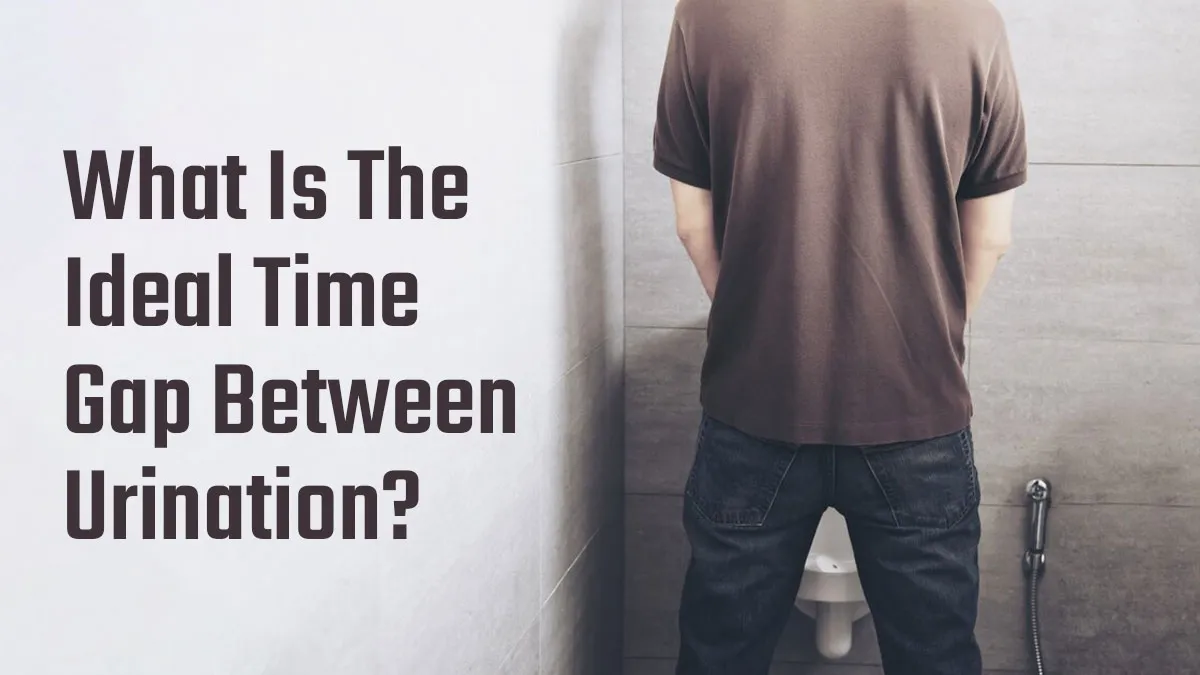
Urination is a natural and essential bodily function that helps eliminate waste and maintain fluid balance. However, many people wonder how often they should be urinating and whether their habits fall within the "normal" range. For some, frequent trips to the bathroom, such as every two hours, might raise concerns about whether this is healthy or indicative of an underlying issue. The frequency of urination can vary greatly from person to person, depending on factors like fluid intake, diet, age, physical activity, and overall health. Regarding the same, we reached out to experts and asked how long should the gap between bathroom visits ideally be.
Table of Content:-
Is It Safe To Urinate Every 2 Hour?
Dr Mohammad Aadil Siddiqui, Saraswati Medical College, Unnao, and Dr Shadan Ahmad Siddiqui, Saraswati Medical College, Unnao, confirmed the notion of urinating every two hours. “Yes, It is absolutely normal to pee every 2 hours unless you don't have any other associated symptoms during urination (like, Burning sensation, Pain, bleeding etc.)” added Dr Aadil. He further explained that the frequency of urination depends on various factors like drinking a lot of water, excessive intake of tea and caffeinated drinks or use of diuretics medication etc.
Dr Shadan Ahmad Siddiqui also suggested that several medical conditions can also increase urination frequency. Some of them are mentioned below.
- Conditions like overactive bladder (OAB), interstitial cystitis, or urinary tract infections (UTIs) can cause more frequent urination.
- Diabetes: Uncontrolled diabetes can lead to frequent urination as the body tries to rid itself of excess glucose.
- Pregnancy: As the uterus expands, it can put pressure on the bladder, leading to more frequent urination.
ALSO READ: Shaking Your Legs for Obesity: Doctor Explains How Leg Fidgeting Burns Calories and Boosts Energy
How Many Hours Gap Between Urinations Is Normal?
-1737630588101.jpg)
Most healthy adults urinate 6 to 8 times a day, which translates to approximately every 3 to 4 hours. This frequency can vary, with some individuals experiencing normal urination between 4 and 10 times daily depending on their fluid consumption and other lifestyle factors. The experts further shared the average normal frequency is about 8 times a day but it can be more depending upon the individual.
According to a study published on PubMed, it was found the average frequency of urination in normal individuals ranges as per the following.
- 6% individual = >6 hours
- 16% individual = once every 5-6 hours
- 51% individual = once every 3-4 hours
- 23% individual = once every 1-2 hours
Factors Influencing Urination Gaps
Urination frequency can vary significantly among individuals due to a variety of factors. Understanding these factors is essential for recognising what constitutes normal urinary behaviour and when changes might indicate a health issue. Here are the primary influences on urination gaps.
- Fluid Intake: Drinking more fluids, especially diuretics like caffeine or alcohol, can shorten the time between urinations.
- Age: Older adults may experience more frequent urination due to changes in bladder capacity and muscle function.
- Health Conditions: Overactive bladder, urinary tract infections (UTIs), diabetes, or certain medications can increase urinary frequency.
- Bladder Capacity: Individuals with smaller bladder capacities may need to urinate more often.
ALSO READ: Are Fast Walkers More Stressed? Study Answers Do Depressed People Walk Slower
When To Seek Medical Advice Regarding Urination?
Recognising when to seek medical advice about urination is crucial for your health. You should consult a healthcare provider if you experience frequent urination (more than eight times a day), pain or burning during urination, blood in your urine, or an inability to urinate. Severe abdominal or lower back pain, sudden loss of bladder control, or frequent urination accompanied by fever, nausea, increased thirst, or unusual discharge are also significant warning signs. Early intervention can help prevent complications and improve quality of life.
Also watch this video
Read Next
The Science Behind The ‘Freshman 15’: Why College Students Gain Weight And How To Prevent It
How we keep this article up to date:
We work with experts and keep a close eye on the latest in health and wellness. Whenever there is a new research or helpful information, we update our articles with accurate and useful advice.
Current Version